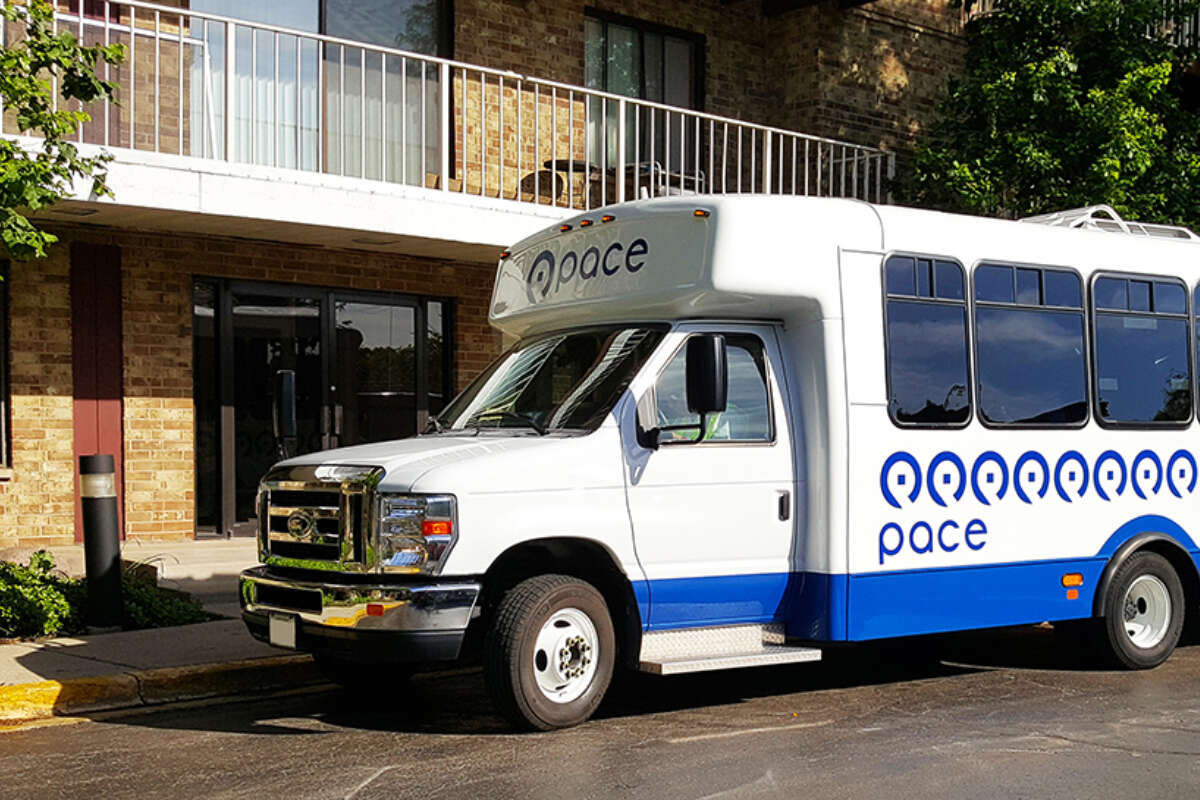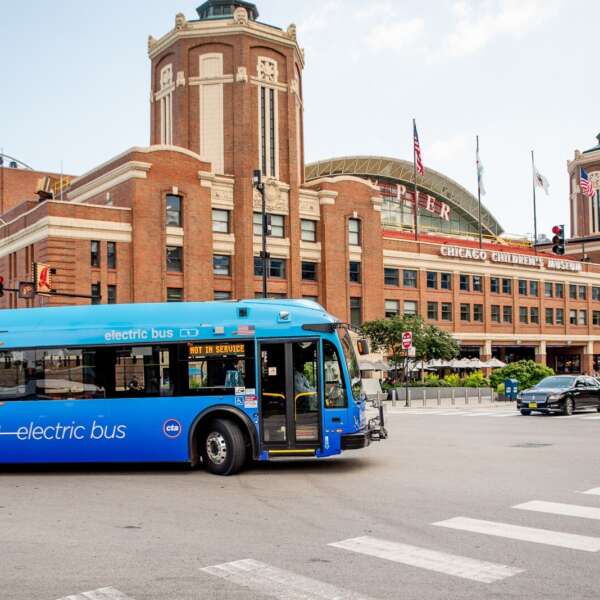Dial-a-ride programs in DuPage County connect individuals with disabilities to job opportunities
October 17, 2022
October 17, 2022

This is part of our Moving You series, which examines federally funded programs managed by the RTA that expand transportation options and access for all.
For individuals with disabilities in DuPage County who cannot or prefer not to drive, a major barrier to landing a job is being able to get transportation to and from work. That transportation needs to be affordable, reliable, and flexible enough to get them where they need to go, when they need to be there. Two dial-a-ride programs in the county, operated by Pace, fill that gap: Naperville’s Ride DuPage to Work program and DuPage County’s Transportation to Work program.
These programs provide coordinated, discounted dial-a-ride service to seniors and individuals with disabilities who need to get to work. Rides are available 24 hours a day, seven days a week, given that many people work beyond first shift. Ride DuPage to Work includes the City of Naperville, Naperville Township, Lisle Township, Wheatland Township, the Village of Glen Ellyn, the City of Wheaton, and Milton Township. DuPage County’s Transportation to Work includes all of DuPage County. In both cases, rides can begin or end outside of the service area as long as one of the points is within the service area.
This year, the RTA will provide $600,000 in federal funding to support Naperville’s Ride DuPage to Work program and $591,000 in federal funding to support DuPage County’s Transportation to Work program through the Section 5310: Enhanced Mobility of Seniors and Individuals with Disabilities Program.
“Especially in the suburbs, there aren't a lot of options for transit for people who rely on it, who don't have a vehicle, who are unable to drive,” said Andrea Nair, Project Manager, City of Naperville Transportation Engineering and Development. “This is really an essential program to allow them to travel to and from work. Some people don't have family or friends nearby, and even if they did, it's difficult to rely on someone to drive you that frequently.”
While these programs are open to anyone with disabilities who calls to schedule a ride, most of the riders come from organizational partners like the Ray Graham Association, Spectrum Services, and the DuPage County Health Department. These organizations work with individuals with disabilities in a variety of capacities, including connecting them to services that increase their employability. The next step is to get them access to jobs that are a good fit for them, and that’s where partnering with these dial-a-ride services comes in handy.
Prior to these programs, riders were restricted to narrow geographic service areas of their township or village dial-a-ride service. Additionally, there were no dial-a-ride services that operated on weekends or holidays. The expansion of service areas and service hours has opened opportunities for work-related travel regardless of the time of day or location.
“These programs broaden the ability of people to find work that's appropriate to them,” said Gina Stafford, Administrator Intake & Referral, DuPage County. “You have to appreciate that people with disabilities have skills just like anyone else. Let's get them to that job that matches their skills; sometimes that means going outside county lines, so it’s important that our program has that flexibility.”
Geographic flexibility is key, but so is a flexible schedule.
“We wanted to make sure people had access to transit because they're not necessarily working just first shift hours,” Nair said. In 2021, about two-thirds of the trips were taken between 7 a.m. and 6 p.m., but about 10 percent of trips were taken from 6 p.m. to midnight, 12 percent from midnight to 7 a.m., and about 15 percent of trips were taken on weekends.
It’s important to individuals with disabilities that they have access to transportation to work, but it’s also important for communities as a whole.
“Individuals with disabilities make a difference, and we need people to be employed,” Stafford said. “We need people to contribute to society, and everybody can contribute. Without this program, there's no way for some of these folks to get to their jobs. So by doing this, we're helping them better themselves, and we're bettering our community at the same time.”
Subscribe to our Newsletter
Related Articles
 How to navigate the Democratic National Convention using public transportation
How to navigate the Democratic National Convention using public transportation
The Democratic National Convention is coming to Chicago’s United Center and McCormick Place August 19-22, 2024, and with it will come roughly 50,000 visitors...
July 25, 2024 How to use transit to explore museums in the Chicago region
How to use transit to explore museums in the Chicago region
The Chicago region is home to countless accessible cultural and educational amenities including 150 museums across several counties. The most cost-effective ...
July 10, 2024 RTA welcomes summer 2024 interns
RTA welcomes summer 2024 interns
This summer the RTA welcomed six new interns from Chicago-area universities. The interns work in various departments including Communications, IT, Strategic ...
June 27, 2024 Four months into the Access Pilot Program, over 3,000 Metra riders experiencing low incomes enrolled for more affordable fares
Four months into the Access Pilot Program, over 3,000 Metra riders experiencing low incomes enrolled for more affordable fares
On February 1, RTA launched the Access Pilot Program in partnership with Cook County and Metra, extending reduced fares to eligible Metra riders experiencing...
June 13, 2024 How to use transit to celebrate Pride Month in the Chicago region
How to use transit to celebrate Pride Month in the Chicago region
June is Pride Month, a time to honor and celebrate Lesbian, Gay, Bisexual, Transgender, Queer and Questioning (LGBTQ+) individuals in the United States. The ...
May 31, 2024 How to use transit to enjoy summer in the Chicago region
How to use transit to enjoy summer in the Chicago region
Summer weather is here and although the season can feel short for many Chicago residents, there is no shortage of fun to be had. To celebrate the sunshine, t...
May 24, 2024